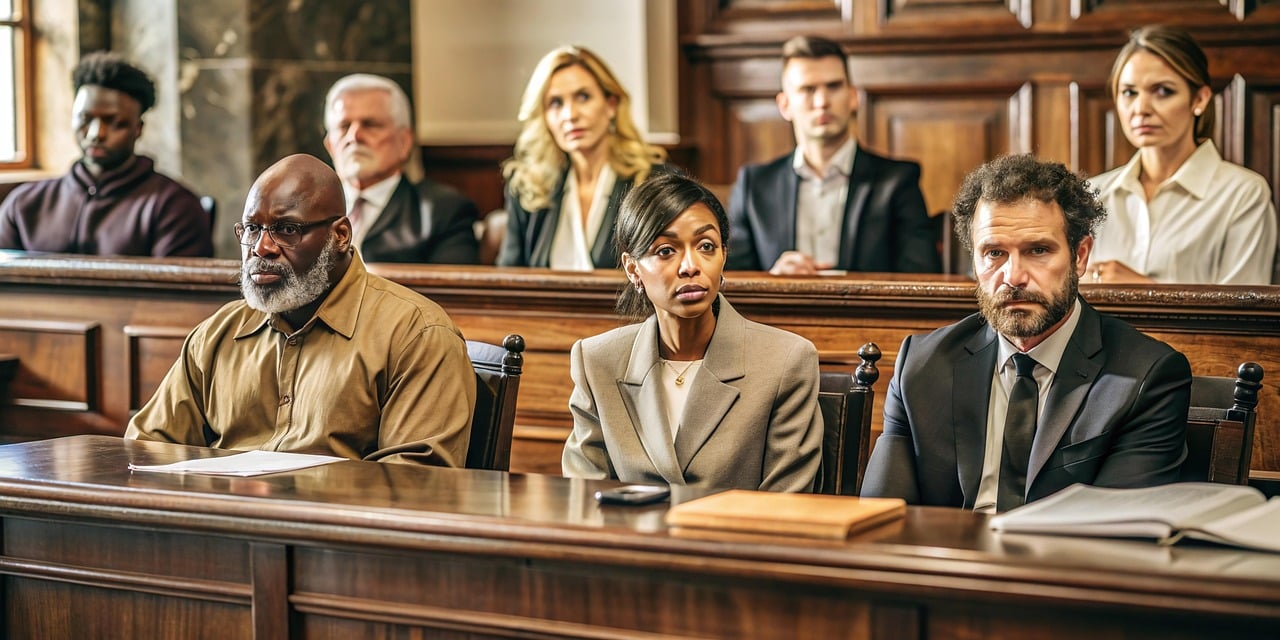Can a felon legally purchase a gun? In general, they can’t. Usually, it’s not only illegal for a felon to buy a firearm, but it’s illegal for them to ship, transport, possess, or receive a firearm or ammunition.
Both federal and state laws control whether a felon can purchase or use a firearm.
Understanding Firearm Possession Restrictions for Felons
Under federal law, felons generally cannot purchase or possess firearms.
A firearm can be a handgun, rifle, or shotgun. And even if it’s not loaded with ammunition, a firearm still is classified as a firearm.
It’s worth noting that federal and Texas laws do not prohibit a felon from possessing an antique firearm made before 1899. However, other states and local jurisdictions may have laws that prevent a felon from possessing an antique firearm.
A felon is defined as someone who’s been convicted of a felony, meaning they received a jail or prison sentence of at least one year for committing a felony-level crime. Felonies may include offenses such as murder, manslaughter, rape, kidnapping, and drug trafficking.
Felons who generally fall under the gun-possession prohibition laid out in federal law include:
- Anyone convicted of a crime carrying a prison term of at least one year
- Anyone who is a fugitive from justice
- Anyone who has illegally used a controlled substance
State Laws on Possession of Firearms by Felons
State laws go deeper into whether felons can possess firearms.
Generally, all states except Vermont prohibit felons from possessing firearms. In Vermont, state law says that someone must be convicted of a violent crime to be prevented from possessing a firearm.
Some states go even further. For example:
- In Texas, it’s illegal for someone convicted of a felony to possess a firearm. (It’s worth noting that a DWI can prevent you from buying a gun if it leads to a felony conviction in Texas.) If more than five years have gone by since a felon’s prison sentence, probation, or parole was completed, a convicted felon in Texas can keep a firearm at home. Federal law doesn’t allow for this exception.
- In New York, someone convicted of a misdemeanor that’s considered a “serious” crime can’t purchase or possess a firearm.
- In Oregon, someone convicted of a domestic violence or stalking misdemeanor can’t buy or possess a firearm.
By the way, possession of a firearm isn’t limited to actually holding or carrying a firearm. In the case of a felon, possession of a firearm also might refer to having “direct access” to the weapon.
Recent Court Decisions on Firearms Possession by Criminals
Two 2023 federal court rulings arrived at different conclusions about firearms possession by criminals.
In one decision, the U.S. Court of Appeals for the Eighth Circuit, based in St. Louis, ruled against an appeal by Edell Jackson. The Duluth, Minnesota, man argued that he had a right under the Second Amendment right to possess a gun, despite the fact that he had two previous felony convictions for selling a controlled substance.
Meanwhile, the Philadelphia-based U.S. Court of Appeals for the Third Circuit declared that the federal ban on gun possession by felons was unconstitutional when narrowly applied to a man convicted of food stamp fraud.
In the second case, Bryan Range, a resident of Lancaster County, Pennsylvania, pleaded guilty to lying about his income from mowing lawns to obtain food stamps. A judge sentenced Range to probation, even though, under Pennsylvania law at that time, he could have been sent to prison for up to five years.
Range’s crime was a misdemeanor, not a felony. But under federal gun laws, someone can’t possess a firearm after they’ve been convicted of a state-level misdemeanor that carries a potential prison term of more than two years. However, the appellate court decided that in Range’s case, his Second Amendment right to possess a firearm had been violated.
The U.S. Supreme Court may end up weighing in on one or both of these cases.
Federal Laws Governing Firearm Purchases by Felons
During the federal government’s 2022 budget year, more than 7,600 people previously convicted of a felony were prevented under federal law from shipping, transporting, possessing, or receiving a firearm or ammunition, according to the U.S. Sentencing Commission.
Aside from those federal prohibitions, it’s illegal for someone to sell or give a firearm or ammunition to a person they believe is under indictment for or has been convicted of a felony carrying a prison term of at least one year.
Federal gun possession bans also might apply to:
- A felon who is a fugitive
- A felon who has unlawfully used or is addicted to a controlled substance (Examples of controlled substances include fentanyl, oxycodone, cocaine, meth, heroin, and LSD.)
Also, anyone awaiting trial on a felony charge is prohibited from receiving a firearm. The federal law regarding firearms possession even extends to people convicted of misdemeanors with prison sentences of up to two years.
A felon who breaks federal laws regarding firearms possession faces some stiff penalties:
- Up to 10 years in prison
- A mandatory sentence of 15 years in prison without parole if the felon has at least three convictions for a violent felony (such as burglary or assault) or a drug-trafficking felony, or both types of felonies
- Extra punishment for illegally possessing a stolen firearm or large-capacity magazines, or for using a gun while committing a crime
Legal Procedures for Restoring Firearm Rights
Under federal law, a criminal whose conviction has been set aside or erased or who has been pardoned generally isn’t viewed as a convict. Therefore, they’d likely be able to possess a firearm.
However, that same felon might not be allowed to possess a firearm if legal circumstances dictate that they still be barred from possessing a firearm.
If, for example, a felony conviction happened under federal law, a presidential pardon would enable a felon to once again receive, possess, or transport firearms.
States take different approaches to the restoration of firearm rights:
- Many states return Second Amendment rights to felons after a waiting period that generally lasts five to 15 years. For example, Texans cannot own a gun until at least five years has elapsed since the completion of their sentence or end of probation (whichever is later), and the gun cannot leave their property.
- In some states, a felon regains their Second Amendment rights after completing their sentence.
- A state might let a felon possess a rifle, for instance, but not a handgun.
Keep in mind that federal laws might limit restoration of gun rights at the state level or state laws might limit restoration of gun rights at the federal level. A criminal defense attorney can help a felon determine whether their gun ownership rights can be restored.
To find out how gun possession by a felon is treated at the state level, reach out to the attorney general’s office in the state where they live and the state where they were convicted (if those states are not the same) to ask about state and local firearms restrictions. In some cases, a pardon by a governor or an official restoration of civil rights might pave the way for a convicted felon to possess a firearm.
A list of contact information for state attorneys general is available from the National Association of Attorneys General.
Legal Implications of Purchasing Guns Through Third Parties
People who buy guns through third parties, such as private sellers or gun shows, may face legal trouble if those guns end up in the hands of felons. However, loopholes may enable felons to own guns acquired through third parties.
Under federal law, you’re allowed to buy a gun and give it to someone. However, you’re prohibited from buying a gun and giving it to someone you believe isn’t supposed to own a gun. So, if someone bought a gun and knowingly gave it to a convicted felon, they could be charged with a federal felony for making what’s known as a “straw purchase.”
A legal loophole might allow a felon to acquire a gun on their own. Private sellers are permitted to sell firearms to unlicensed people who live in the same state, as long as a seller doesn’t think the potential buyer can’t legally possess a gun. But since not all sellers conduct background checks, a felon may be able to use this loophole to acquire a firearm.
No matter how they ended up with a gun, a convicted felon could be charged with illegal possession of a firearm under federal or state laws.
Consequences of Unlawful Firearm Possession by Felons
The consequences of a felon unlawfully possessing a firearm can be serious.
Under federal law, a felon who’s guilty of possessing a firearm could be sentenced to as much as 10 years in prison and fined as much as $250,000. The maximum prison sentence could rise to 15 years if the same felon has three previous convictions for a violent felony or has a previous conviction for a serious drug crime.
State laws also come down hard on possession of a firearm by a felon.
In Texas, it could lead to a felony conviction carrying a prison sentence up to 10 years and a fine up to $10,000.
In other states, a felon convicted of illegally possessing a firearm might be sentenced to one to three years in prison. The punishment increases for a second or third conviction for illegally possessing a firearm, including a longer prison sentence and a large fine.
In some states, a person convicted of certain misdemeanors might even be prohibited from possessing a firearm. So, if they violate that ban, they could face additional time behind bars or fines.
On top of all this, state or federal probation or parole could be revoked if possessing a firearm violates the terms of a convicted criminal’s probation or parole.
Legal Guidance: How an Attorney Can Help Restore Firearm Rights
One way that a criminal defense attorney may be able to restore someone’s firearm rights is by getting a conviction reduced from a felony to a misdemeanor. However, this may not work in states where even a misdemeanor conviction might result in the loss of firearm rights.
Another possible way: Getting a conviction expunged, which then might clear the path to gun ownership. Once someone’s conviction is expunged, all information about the conviction is removed from their criminal record and the person can deny that the crime ever happened. Expungements occur in state courts, not federal courts.
Throughout the process of seeking to restore a client’s gun rights, a criminal defense attorney can evaluate whether a client is eligible, offer guidance, and represent them in legal proceedings.
FAQs About Felons and Firearm Purchases
Can a Felon Ever Legally Purchase a Firearm?
In most cases, a felon convicted of a state or federal crime cannot legally purchase a firearm. However, state and federal laws might allow for exceptions. For instance, a felon convicted of a federal crime can purchase a firearm if they receive a presidential pardon.
How Can a Felon Restore Their Firearm Rights?
A felon may be able to restore their firearm rights. At the federal level, a presidential pardon is essentially the only way for a felon to restore their federal firearm rights. At the state level, a felon might be provided several avenues for restoring state firearm rights, such as having a felony conviction reduced to a misdemeanor conviction or getting a conviction removed (or expunged) from their criminal record.
Can a Felon Inherit or Receive a Firearm as a Gift?
In general, a felon cannot inherit a firearm or receive a firearm as a gift. Why? Because this would qualify as possession of a firearm in violation of federal or state laws.
What Happens if a Felon Is Caught in Possession of a Firearm?
What happens to a felon if they’re caught in possession of a firearm depends on whether they were convicted of a federal or state crime.
At the federal level, a felon convicted of illegally possessing a firearm faces as much as 15 years in prison and a $250,000 fine.
Punishment for illegal possession of a firearm varies from state to state. In Texas, for example, possession of a firearm by a felon within five years of them being released could lead to a felony conviction carrying a prison sentence up to 10 years and a fine up to $10,000.



